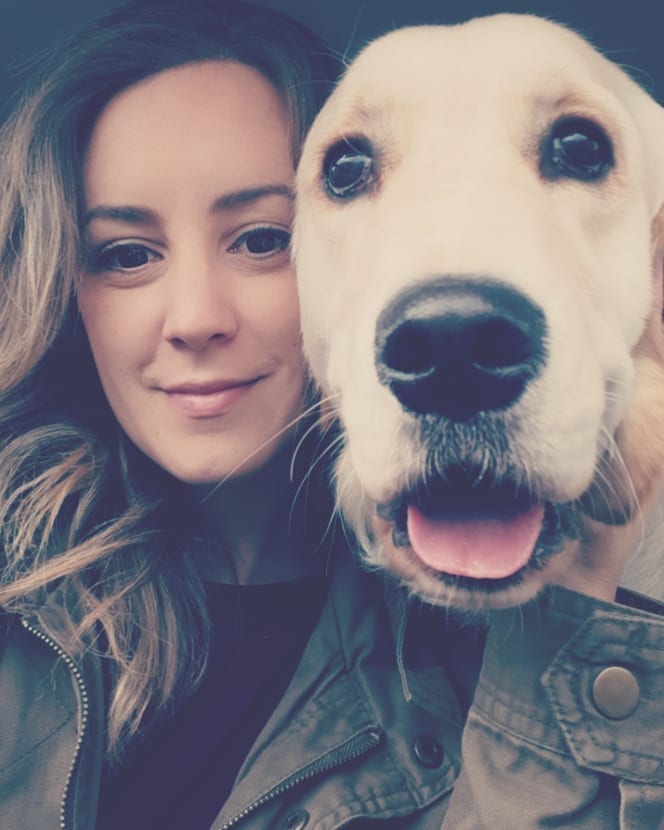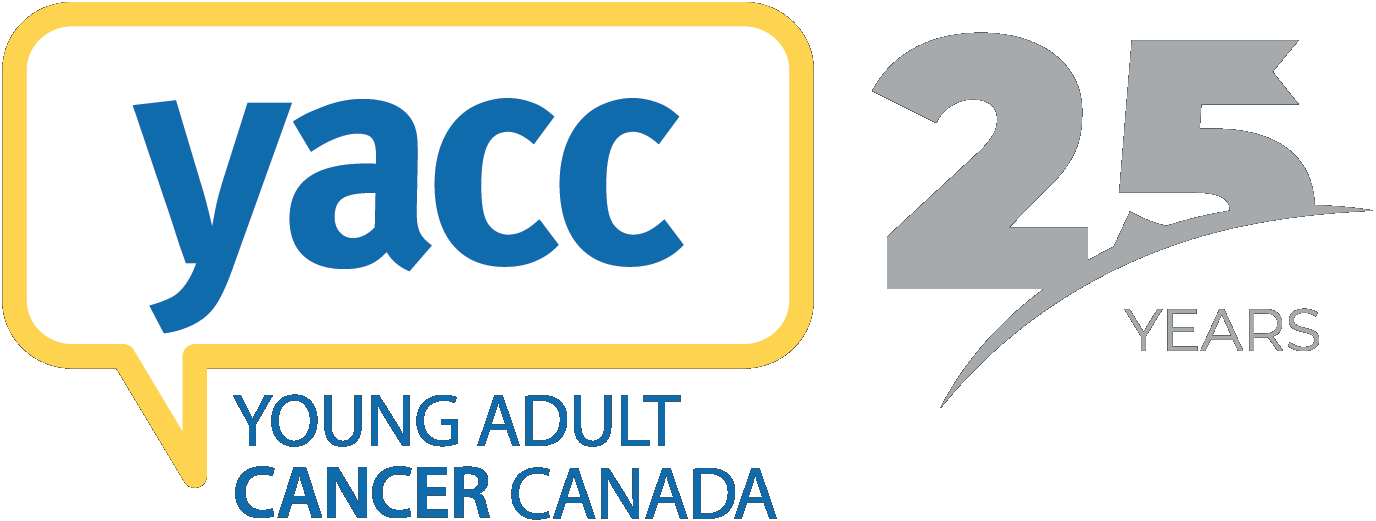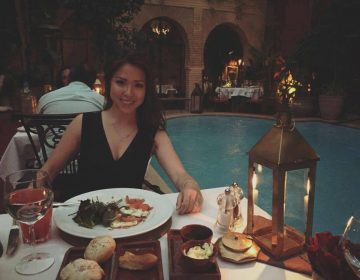
Paige Panetta
Name: Paige Panetta
Age: 29
City: Waterloo, ON
What was/is your diagnosis?
Uveal melanoma (choroidal melanoma)
What year was it? What was your age at the time?
I had just turned 27 and testing began in May 2017. My official diagnosis was given July 2017.
What is something you’ve done that you’re really proud of?
I completed my Masters Degree in Applied Behaviour Analysis and have started checking many items off of my “bucket list.”
What is a top item on your life to do list?
I have done so many already! A couple of items that I have not checked off yet is to go on a hot air balloon ride and visit Ireland.
What are your hobbies?
Yoga, calligraphy, and photography.
Your diagnosis:
What was your life like before your diagnosis?
Prior to my diagnosis my life was very busy. I was traveling a lot for fun and for work.
How did you find out you were sick? What led to your diagnosis?
I had no idea I was sick. I had zero symptoms when I found out I had cancer. I had been for an eye exam in April 2017 and was told my eyes looked perfect and that I had perfect vision. In May 2017, I scratched one of my eyes while I was traveling and ended up at a new optometrist who found my tumor. I was immediately sent for additional testing and quickly admitted for surgery and radiation treatment.
What were your first thoughts when diagnosed?
My whole world stopped the second I hear the words “you have cancer.” I felt like I was drowning the moments after hearing the words. I couldn’t hear anything the doctors were saying and couldn’t answer any of the questions they were asking me. The few days following my diagnosis I just thought about how short my life could be. I was sad and angry that this had happened to me and asked “why me” a lot in the first few months.
In which hospital(s) are/were you treated?
- Princess Margaret Hospital
- Toronto General Hospital
What did your treatment consist of?
My initial medical treatment involved x-rays, an MRI, blood tests, and many vision tests. I had surgery to surgically cut my strabismus muscles and place a radioactive plaque in my eye (brachytherapy/radiation). For the next week I had the radioactive plaque in my eye and stayed in bed at home. My caregivers had to administer many eye drops/medications every few hours to ensure my eye stayed clean and did not get infected.
I went back and forth to the hospital a few times to have it checked during this period of time. I had my eye covered with tape and gauze for that week and couldn’t see anything. Following that, I had a second surgery to remove the plaque and reattach my strabismus muscle. After my last surgery I had my eye closed with tape and gauze for my recovery time.
I had double vision for awhile after my treatment and it took a while for me to see properly.
Describe the non-medical side (how you felt physically and emotionally, side effects, etc)
I feel like I have blocked out a lot of the emotional aftermath. After my cancer diagnosis, I struggled with anxiety and sleeping. I have been very lucky to be connected with great therapists, great doctors, and great friends and family. I have a wonderful support system that has been a huge part of the emotional recovery. I have some lingering vision issues (sometimes I will see bright lights, double vision, or blurry vision).
What is your current medical status?
My tumour is stable! Around the one year mark post diagnosis, I found out I was having some complications from radiation (decreased circulation, vision issues) and had to begin getting eye injections every eye weeks. This treatment involved starting with injections that were close together and graduating to more time in between. I currently go to the outpatient clinic every three months to have my eye examined and have an eye injection.
Life after cancer:
How is life different for you now post diagnosis (physically, emotionally, socially, and spiritually)?
I fill my time doing positive and fun activities. I made a long list of things I wanted to experience. The items I have crossed off of my bucket list are: Greece trip, bought a puppy, went paddle boarding, saw Pink in concert, went to a paint nite, went to the shooting range, swam with dolphins, and bought a good camera.
I have my sad moments and worry about what could possibly happen in the future with my condition.
What is/was the toughest part about having cancer as a young adult?
The toughest part was thinking about how I might not have the time I thought I would have to accomplish all of the things I want to do in my life.
What really helped/helps you to keep going while you were/are sick?
During my initial surgeries and treatment, my parents and a few friends were a huge part of my medical care. I relied on them for transportation and all of my medical needs. Having those people around me during that time kept me going.
With my current injection treatments I rely on my friends and boyfriend for transportation and support throughout those appointments. They always make sure to schedule something fun following the appointment like going out for gourmet doughnuts in Toronto.
What kept you/keeps you busy during treatment?
I listened to music and listened to a lot of TV/movies.
How are you connected with Young Adult Cancer Canada? How did it happen?
I have been very fortunate to make some great friends on social media with my same diagnosis. One of those friends (Ashley Morine) let me know it was a great organization.
The issues:
Did you feel isolated from your peers since your diagnosis?
I was lucky to meet a few friends my age on social media with my diagnosis. I got to go meet one of them in person a few years ago in Scotland! They were and still are a great part of my support network. We chat frequently on social media and keep each other updated on our journeys.
Has your cancer diagnosis affected any of the relationships in your life? If so, how, and how are you managing them?
I think it has made a lot of my relationships closer. I really treasure the moments I have with my friends and family.
How has your cancer experience affected your body image, and your relationship to your body? What are some lifestyle changes you’ve made since your diagnosis?
I take better care of my body now. I always think twice about what I am buying at the grocery store and what I am eating. I make sure that I am out walking my dog and exercising more. I have made some changes to the products I use and select ones with natural ingredients.
Resources and recommendations:
What would you add to a treatment-day playlist?
“Fight Song” by Rachel Platten was my “theme song.”
Which books/movies/podcasts/TV shows/etc. would you recommend?
I listened to the Harry Potter audio books (I wasn’t able to read during my treatment). I also watched a lot of Friends because it was easy to watch and made me laugh.
Have you participated in any other retreats, conferences, programs, or support groups you’d like your cancer peers to know about?
I attend Yoga to Conquer Cancer which benefits Princess Margaret Hospital and I also belong to a few ocular melanoma support groups on Facebook.
Are there any other resources you’d like to recommend?
Wellspring is a great place that is full of helpful volunteers, provides counselling, and provides healthy cooking classes and activities such as painting and yoga.
Stay in touch:
What would you like to say to other young adults dealing with cancer who are reading this profile?
I want to remind people that they are not alone. I know each cancer journey is different and everyone has different medical experiences but there are people out there having some of the same worries and thoughts as you. Keep going!










